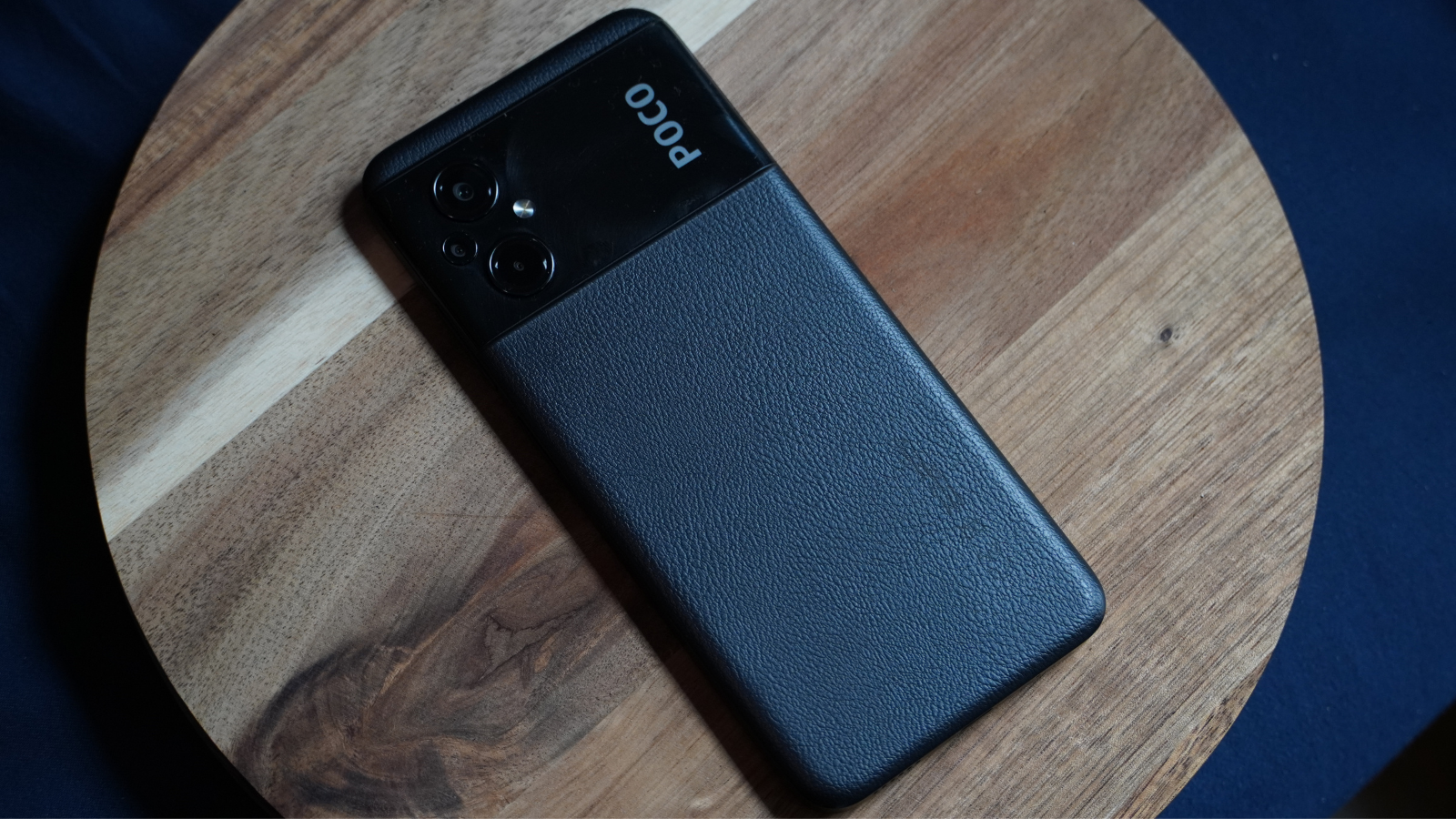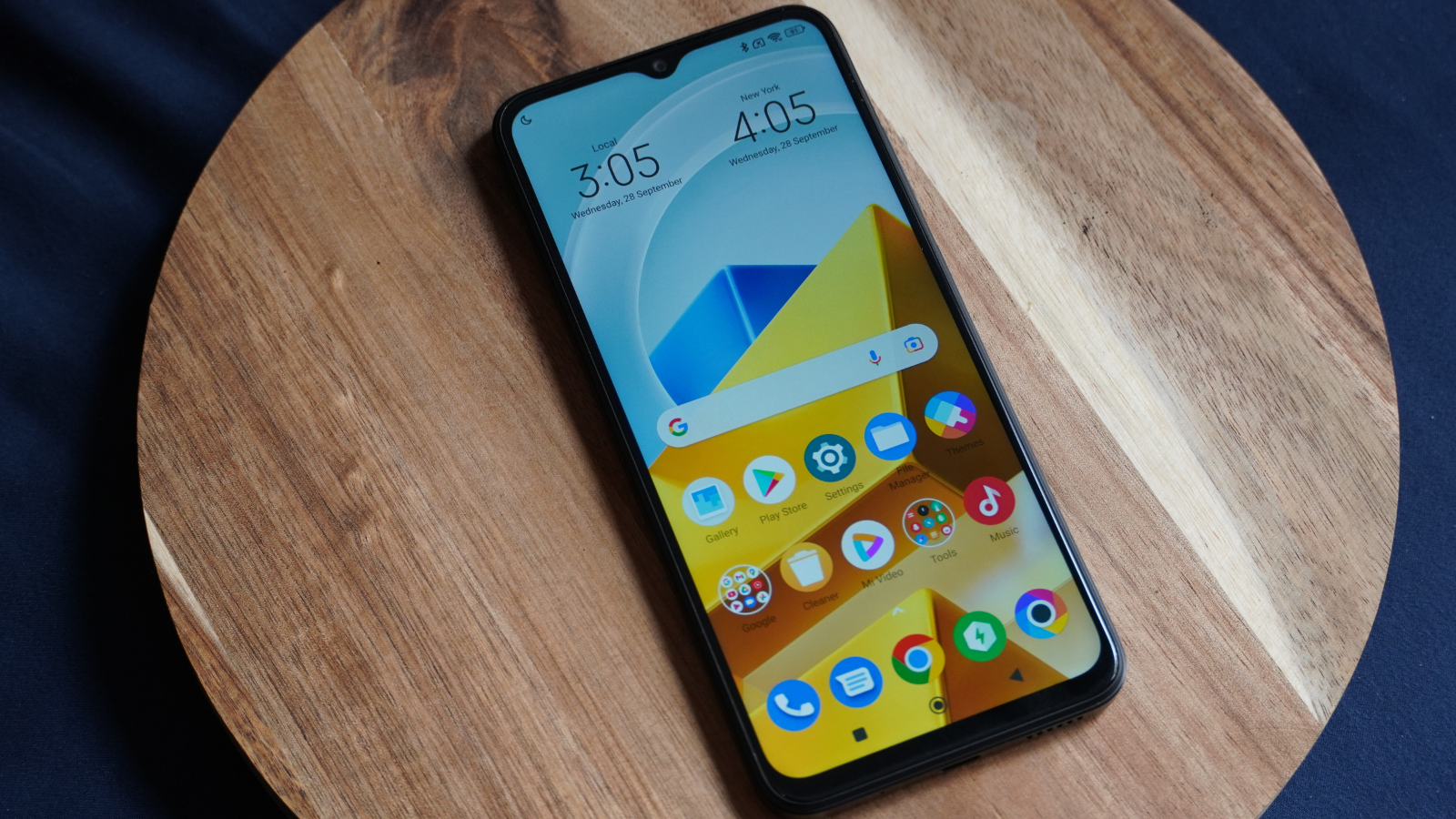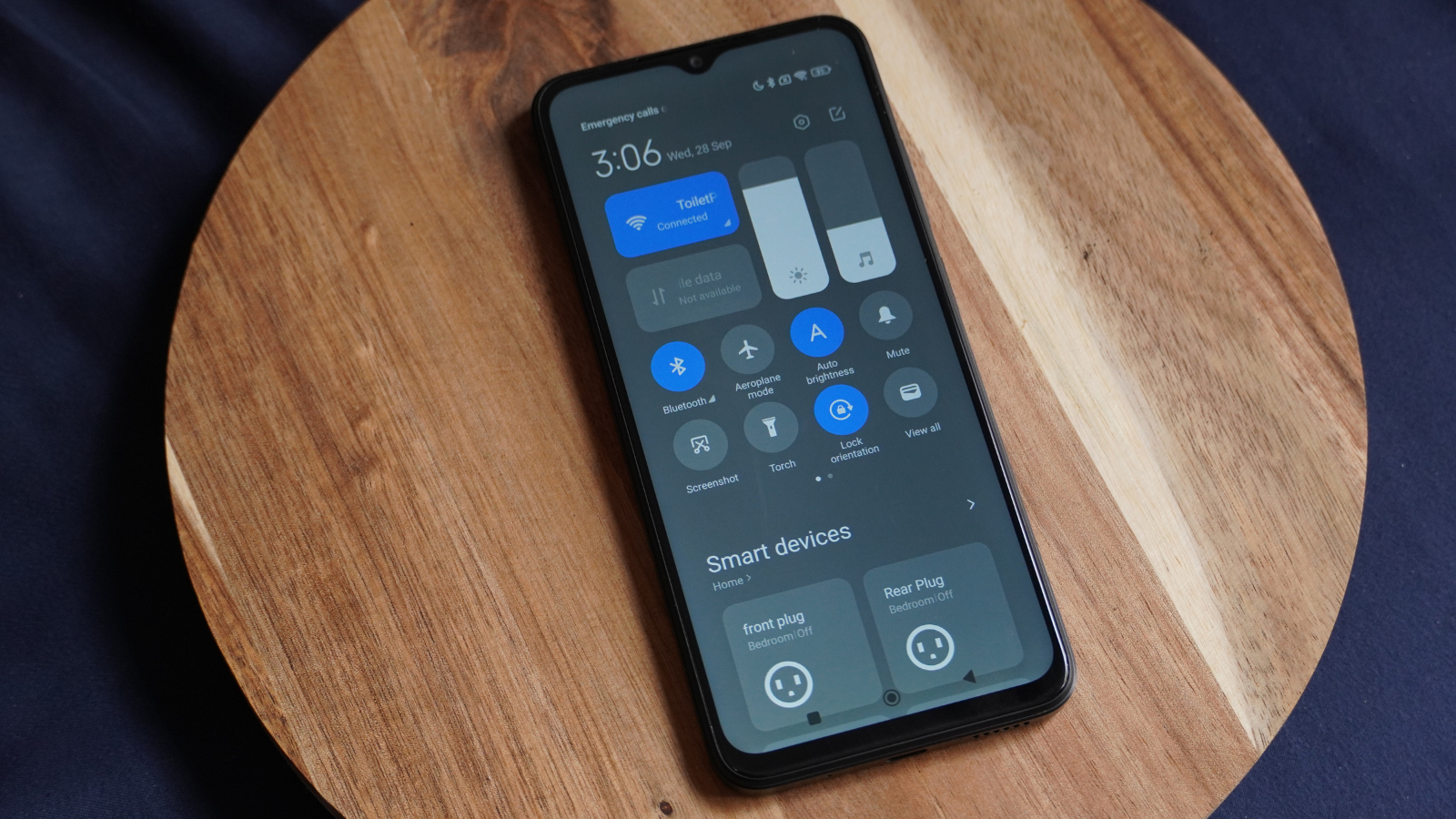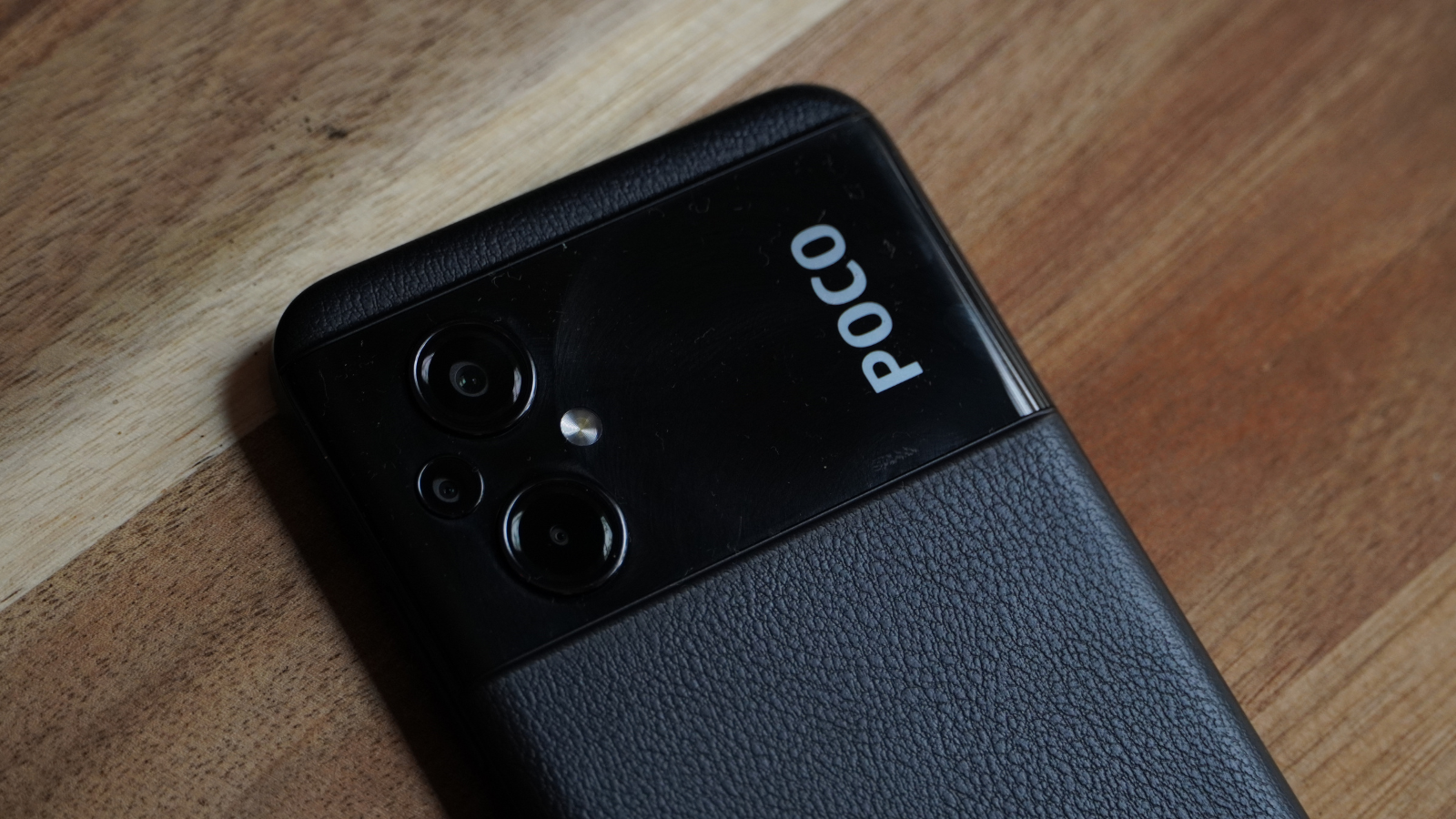Poco M5 smartphone review: when budget cuts go a little too far
A serviceable device that’s difficult to recommend given other impressive options in the budget smartphone market

The Poco M5 is a simply effective phone, but there are too many other budget options that offer more to get excited about for this device to be worth seriously considering.
-
+
Fairly consistent performance
-
+
Big, bright display
-
+
Good battery
-
-
No 5G connectivity
-
-
Only one useful camera
-
-
Speakers are easy to smother
Why you can trust T3

Poco M5 - key specs
Dimensions: 163.99 x 76.09 x 8.9mm
Weight: 201 g
Screen: 6.58-inch LCD (30/60/90Hz)
CPU: Mediatek Helio G99
GPU: Mali-G57 MC2
RAM: 4GB LPDDRX
Storage: 64GB UFS 2.2, expandable via microSD
Rear camera: 50MP main, 2MP macro, 2MP depth
Front camera: 5MP
Battery: 4,6000 mAh
OS: Android 12
5G: No
First launched in 2018 as a mid-range smartphone line, Poco has in recent years established itself as a budget smartphone brand. It certainly has had some winners, such as 2021’s Poco F3.
The new Poco M5, which debuted last September, continues the brand's efforts to offer inexpensive mobile options. However, at a certain point, too much can be done to drop the price of a smartphone – and the Poco M5 seems to be a case of such cost-cutting downgrades hurting the overall device.
The package I received included the 64GB phone, a USB cable, a protective case, and a 22.5W power brick. Read about how we test products at T3.
Now, let’s take a closer look at the Poco M5.

The Poco M5 offers a 6.58-inch display with a teardrop-style notch at the top.
Poco M5 REVIEW: DESIGN AND SCREEN
While the Poco M4 Pro 5G made it obvious that it was borrowing the design of Xioami’s flagship Mi 11 Ultra, the design of the Poco M5 goes out on its own a little bit more. The front of the phone is in line with its budget nature, still offering a display with a teardrop-style notch at the top – as we’ve seen on smartphones for years now.
Poco goes for a sizable display at 6.58 inches, and it offers a sharp resolution of 1080 x 2408 pixels. The “Sunlight” display does a surprisingly good job of providing a strong contrast despite being a standard LCD display. But going heavy on a budget has tended to come with sacrifices to the actual quality of the image.
While it doesn’t look as good as the OLED display Poco managed to pack onto the Poco F3, it’s not as bad as it could be at this price. It does suffer when viewing it at off angles, though. The display can switch between a 30Hz, 60Hz and 90Hz refresh rate, providing smoother visuals as needed or better battery savings. I haven’t noticed any hitches as it switches between modes, so it’s certainly nice to have here.
Get all the latest news, reviews, deals and buying guides on gorgeous tech, home and active products from the T3 experts
Poco earns some style points around the sides and back of the phone, though. The rear is covered in a leather-like material that comes in black, green or yellow. The color also applies to the frame of the phone. Cutting across the top of that leathery material is a large, almost credit card-sized panel that brandishes the Poco logo on one side and the three-camera system on the other.

The camera housing feels a touch deceptive, as the camera bumps make it appear like there are sizable sensors underneath, but there’s just black filler around much of the cover glass. The 2MP depth camera has a smaller bump that could have likely applied just as easily to the 2MP macro camera, which instead gets a large bump.
Around the side of the phone is a volume button and a power button that has a built-in fingerprint sensor. The left side houses a dual SIM tray that supports microSD cards.
The speakers are obnoxiously easy to smother at both sides, and you might not even realize it because it can be almost completely muted with a palm. The sound comes out impactfully when not covered, but with a bit of a grating balance that makes it uncomfortable to use at max volume.
The Poco M5 does provide support for wired headphones, though – long live the 3.5mm headphone jack. That port lives at the top edge of the phone, where the Poco M5 also includes an IR blaster for controlling various electronics, such as TVs, soundbars and more.
One thing you regrettably won’t find on this phone is any promise of water ingress protection. While many phones will protect against water and debris getting inside to some small degree, there’s no assurance of it here. Fortunately, the phone feels fairly sturdy otherwise.

The Poco M5 does not support 5G connectivity.
Poco M5 REVIEW: HARDWARE AND PERFORMANCE
Poco M5 - Geekbench 5 scores

[CPU]
Single-Core Score: 552
Multi-Core Score: 1,876
[Compute]
OpenCL: 1,495
Vulkan: 1,463
Where the Poco F3 stunned with its inclusion of a Snapdragon 870 chipset for the price, the Poco M5 doesn’t manage to impress so much with its MediaTek Helio G99. Not only does this chipset not support 5G connectivity, leaving customers out in the cold on a technology that is rapidly rolling out, but it also only supports Wi-Fi 5, meaning two key ways of keeping this phone connected are stuck in the past.
The performance of the Helio G99 chipset in the Poco M5 isn’t bad, but it disappoints next to Poco’s other devices, even the older Poco M4 Pro 5G. The Poco M5 can be a little laggy here and there in daily use, with small stutters interfering with the user experience.
In games, it offers respectably smooth performance that doesn’t stagger with its brilliance, but will leave little to be desired for the casual gamers. The extra refresh rate of the screen may not be taken advantage of for the more demanding games, as even the slightly dated Sky from Thatgamecompany wouldn’t allow the device to run faster than 30fps.
Like the Poco M4 Pro 5G before it, the Poco M5 is likely suffering some slowdowns thanks to its inferior UFS 2.2 storage. It’s hard to get away from at this price, though. The phone comes in either a 64GB model with 4GB of RAM or a 128GB model with 4GB or 6GB of RAM. Many phones do more, but this isn’t a bad place to start, especially with expandable storage available.

The Poco M5 has a three-camera system that produces underwhelming results.
Poco M5 REVIEW: CAMERA, OS AND BATTERY
The cameras on the Poco M5 simply are underwhelming. The main 50MP sensor can handle the basics, but it gets noisy if lighting conditions aren’t optimal. Even when it’s shooting in bright conditions, the photos come out rather over-sharpened and don’t hold up well if you zoom in on the picture. A photo I captured of a bird just a few feet away couldn’t actually resolve any details of the bird when zoomed in on.
There’s a 2MP macro camera on board as well, but the results from it are bad enough that you’re better off just getting a close up with the main camera and cropping in. Close-ups with the main camera come with the added benefit of a fairly satisfying bokeh blur.
Poco also has a 2MP depth camera, but all that does is enable a software-powered portrait mode. While it effectively separates and blurs the background for simple subjects, it’s not a feature I can see using often.
The phone comes running Android 12 with MIUI 13 running on top. Ultimately, MIUI is a little too colorful and has a mishmash of very stylized icons (like that for Themes and Camera) alongside some stunningly plain ones (like Settings and File Manager). It tries a little too hard to put bloatware apps in front of us, keeping the same pre-made folders of promoted apps I found on the Poco M4 Pro 5G, but at least most of them are not actually installed.
MIUI continues to offer its own take on the notification shade and quick settings drop-down. Both take over the whole screen, but they make effective use of the space, especially with how many settings are available on one screen. Once one of these shades is pulled down, it’s also just a simple swipe sideways to switch between them.
One positive is the battery. At 5,000mAh, the Poco M5 packs plenty of juice for all-day use, even with a bit of gaming and entertainment. It has 18W fast charging on deck, which is regrettably a downgrade from the M4 Pro 5G’s 33W charging. Unfortunately, I haven’t found a Poco charger that works in the US.






Poco M5 REVIEW: VERDICT
The Poco M5 isn’t a total disappointment, given it’s a serviceable device that doesn’t struggle much while maintaining a price under $200.
But the budget smartphone market has some truly impressive options, which make the Poco M5 tough to recommend – especially when it has seemingly downgraded on many aspects of its recent cousin, the Poco M4 Pro 5G.
Poco M5 REVIEW: ALSO CONSIDER
The capabilities of the Poco M5 just don’t let it fully fly. For the budget price, you’d be better served by a similar phone that gives you 5G, such as the OnePlus Nord N10 5G or N200. Or, you could at least enjoy an improved visual experience from the AMOLED display of the Xiaomi Redmi Note 10 Pro.
And, if you’re looking for a proven Poco product that can still hold its own, the Poco M4 Pro 5G remains a solid choice.

Mark Knapp has covered tech for most of the past decade, keeping readers up to speed on the latest developments and going hands-on with everything from phones and computers to e-bikes and drones to separate the marketing from the reality. Catch him on Twitter at @Techn0Mark or on T3, PCMag, IGN, TechRadar, Business Insider, and Reviewed.